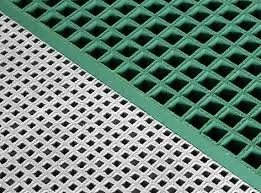
-
 Afrikaans
Afrikaans -
 Albanian
Albanian -
 Amharic
Amharic -
 Arabic
Arabic -
 Armenian
Armenian -
 Azerbaijani
Azerbaijani -
 Basque
Basque -
 Belarusian
Belarusian -
 Bengali
Bengali -
 Bosnian
Bosnian -
 Bulgarian
Bulgarian -
 Catalan
Catalan -
 Cebuano
Cebuano -
 China
China -
 China (Taiwan)
China (Taiwan) -
 Corsican
Corsican -
 Croatian
Croatian -
 Czech
Czech -
 Danish
Danish -
 Dutch
Dutch -
 English
English -
 Esperanto
Esperanto -
 Estonian
Estonian -
 Finnish
Finnish -
 French
French -
 Frisian
Frisian -
 Galician
Galician -
 Georgian
Georgian -
 German
German -
 Greek
Greek -
 Gujarati
Gujarati -
 Haitian Creole
Haitian Creole -
 hausa
hausa -
 hawaiian
hawaiian -
 Hebrew
Hebrew -
 Hindi
Hindi -
 Miao
Miao -
 Hungarian
Hungarian -
 Icelandic
Icelandic -
 igbo
igbo -
 Indonesian
Indonesian -
 irish
irish -
 Italian
Italian -
 Japanese
Japanese -
 Javanese
Javanese -
 Kannada
Kannada -
 kazakh
kazakh -
 Khmer
Khmer -
 Rwandese
Rwandese -
 Korean
Korean -
 Kurdish
Kurdish -
 Kyrgyz
Kyrgyz -
 Lao
Lao -
 Latin
Latin -
 Latvian
Latvian -
 Lithuanian
Lithuanian -
 Luxembourgish
Luxembourgish -
 Macedonian
Macedonian -
 Malgashi
Malgashi -
 Malay
Malay -
 Malayalam
Malayalam -
 Maltese
Maltese -
 Maori
Maori -
 Marathi
Marathi -
 Mongolian
Mongolian -
 Myanmar
Myanmar -
 Nepali
Nepali -
 Norwegian
Norwegian -
 Norwegian
Norwegian -
 Occitan
Occitan -
 Pashto
Pashto -
 Persian
Persian -
 Polish
Polish -
 Portuguese
Portuguese -
 Punjabi
Punjabi -
 Romanian
Romanian -
 Russian
Russian -
 Samoan
Samoan -
 Scottish Gaelic
Scottish Gaelic -
 Serbian
Serbian -
 Sesotho
Sesotho -
 Shona
Shona -
 Sindhi
Sindhi -
 Sinhala
Sinhala -
 Slovak
Slovak -
 Slovenian
Slovenian -
 Somali
Somali -
 Spanish
Spanish -
 Sundanese
Sundanese -
 Swahili
Swahili -
 Swedish
Swedish -
 Tagalog
Tagalog -
 Tajik
Tajik -
 Tamil
Tamil -
 Tatar
Tatar -
 Telugu
Telugu -
 Thai
Thai -
 Turkish
Turkish -
 Turkmen
Turkmen -
 Ukrainian
Ukrainian -
 Urdu
Urdu -
 Uighur
Uighur -
 Uzbek
Uzbek -
 Vietnamese
Vietnamese -
 Welsh
Welsh -
 Bantu
Bantu -
 Yiddish
Yiddish -
 Yoruba
Yoruba -
 Zulu
Zulu
fiberglass weir
The Role of Fiberglass Weirs in Water Management
Fiberglass weirs are emerging as a vital component in modern water management systems, offering a combination of durability, lightweight properties, and resistance to various environmental factors. These structures are used for measuring and controlling water flow in various applications, including rivers, streams, canals, and wastewater treatment facilities. This article delves into the significance, advantages, and applications of fiberglass weirs in contemporary water management practices.
Understanding Weirs
A weir is a barrier built across an open channel to alter the flow characteristics of the water. Traditional weirs are often constructed from concrete or metal, but fiberglass has gained popularity as an alternative material due to its unique characteristics. Fiberglass, a composite made from glass fibers and resin, is renowned for its high strength-to-weight ratio, corrosion resistance, and low maintenance requirements.
Advantages of Fiberglass Weirs
1. Durability Fiberglass weirs can withstand harsh environmental conditions, including extreme temperatures and corrosive substances. Unlike metal, which can rust, or concrete, which can crack over time, fiberglass maintains its integrity longer, reducing the need for frequent repairs or replacements.
2. Low Maintenance The non-corrosive nature of fiberglass means that these weirs require minimal upkeep. Regular inspections are sufficient to ensure optimal performance, saving time and costs over the long term.
3. Lightweight Design Fiberglass weirs are significantly lighter than their concrete or metal counterparts. This characteristic allows for easier transportation and installation, particularly in remote or challenging locations where heavy machinery is impractical.
fiberglass weir

4. Versatile Applications Fiberglass weirs can be used in various settings, from agricultural irrigation systems and municipal water management to environmental monitoring and research projects. They can be customized to meet specific flow measurement needs, making them a flexible solution for numerous water management challenges.
5. Eco-Friendly Many fiberglass products are manufactured using recycled materials, making them an environmentally friendly option. Additionally, fiberglass's resilience reduces the frequency of replacements, thus minimizing waste.
Applications in Water Management
Fiberglass weirs play a crucial role in applications such as hydrological studies, dam management, and irrigation systems. In hydrological studies, these weirs provide accurate flow measurements critical for research and environmental assessments. In dam management, they help regulate water levels and prevent flooding, ensuring safety and stability in affected areas. For irrigation systems, fiberglass weirs assist in distributing water efficiently, enhancing agricultural productivity.
In wastewater treatment, fiberglass weirs are instrumental in managing effluent flows and sedimentation processes, ensuring that treated water meets environmental standards before being discharged into natural bodies. Their reliability makes them a popular choice among engineers and environmental scientists.
Conclusion
The adoption of fiberglass weirs represents a significant advancement in water management technology. Their durability, low maintenance, lightweight properties, and versatility make them an ideal choice for various applications. As the need for effective water management solutions continues to grow, fiberglass weirs are poised to play an increasingly essential role in ensuring sustainable water resources and environmental protection.
Latest news
-
Exploring the Benefits of Top Hammer Drifter Rods for Enhanced Drilling PerformanceNewsJun.10,2025
-
High-Precision Fiberglass Winding Machine for GRP/FRP Pipe Production – Reliable & Efficient SolutionsNewsJun.10,2025
-
FRP Pipes & Fittings for Shipbuilding - Corrosion-Resistant & LightweightNewsJun.09,2025
-
Premium FRP Flooring Solutions Durable & Slip-ResistantNewsJun.09,2025
-
Premium Fiberglass Rectangular Tanks Durable & Lightweight SolutionNewsJun.09,2025
-
Tapered Drill String Design Guide Durable Performance & UsesNewsJun.09,2025









